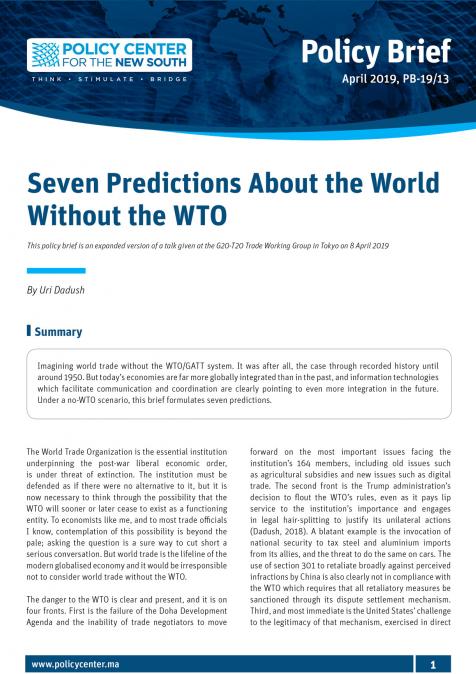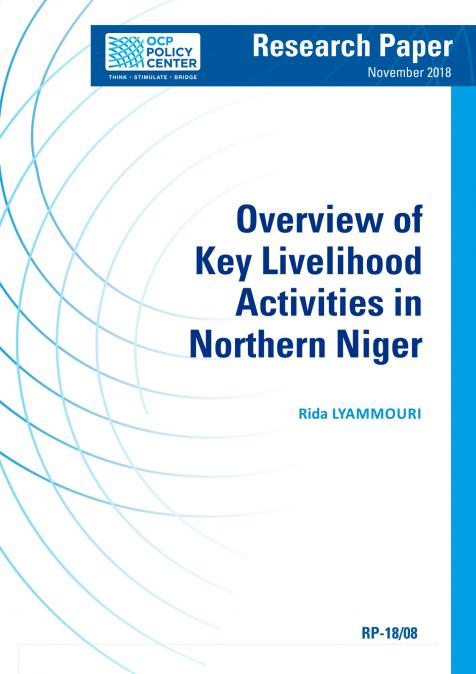Publications /
Policy Brief
Imagining world trade without the WTO/GATT system. It was after all, the case through recorded history until around 1950. But today’s economies are far more globally integrated than in the past, and information technologies which facilitate communication and coordination are clearly pointing to even more integration in the future. Under a no-WTO scenario, this brief formulates seven predictions.
The danger to the WTO is clear and present, and it is on four fronts. First is the failure of the Doha Development Agenda and the inability of trade negotiators to move forward on the most important issues facing the institution’s 164 members, including old issues such as agricultural subsidies and new issues such as digital trade. The second front is the Trump administration’s decision to flout the WTO’s rules, even as it pays lip service to the institution’s importance and engages in legal hair-splitting to justify its unilateral actions (Dadush, 2018). A blatant example is the invocation of national security to tax steel and aluminium imports from its allies, and the threat to do the same on cars. The use of section 301 to retaliate broadly against perceived infractions by China is also clearly not in compliance with the WTO which requires that all retaliatory measures be sanctioned through its dispute settlement mechanism. Third, and most immediate is the United States’ challenge to the legitimacy of that mechanism, exercised in direct fashion by refusing to renew the mandate of members of its Appellate Body. Fourth, China – together with the EU, now the world’s largest exporter – engages in various forms of obscure subsidisation and forced intellectual property transfer. But at least, unlike the present United States administration, China recognises that it is a major beneficiary of the multilateral rules-based trading system and officially supports it.





